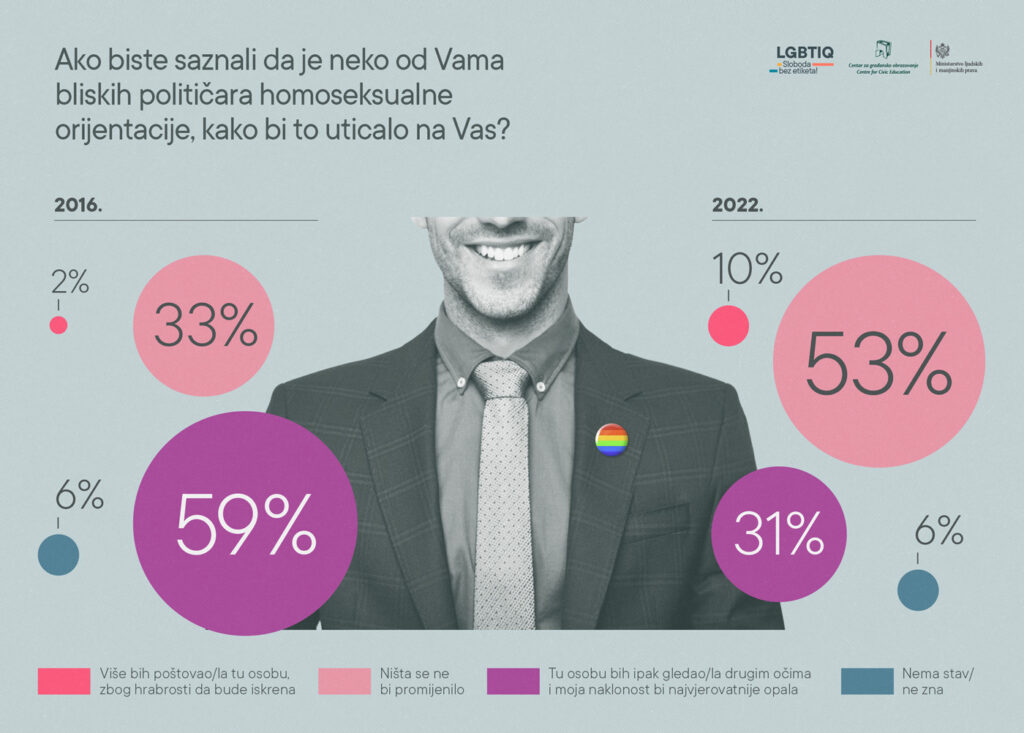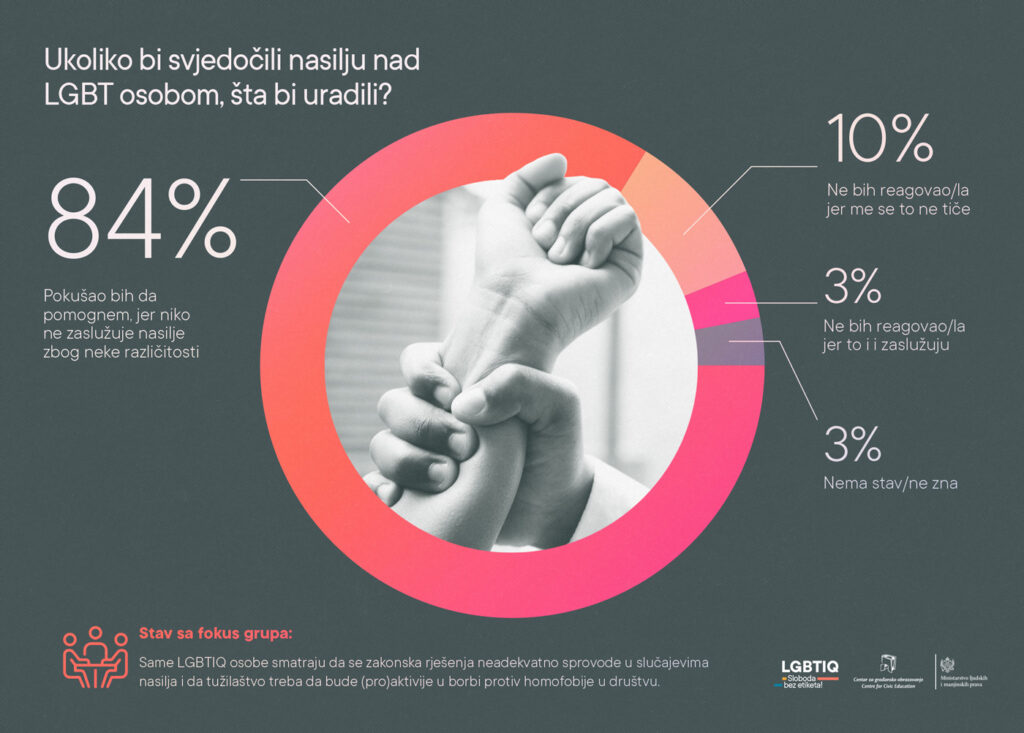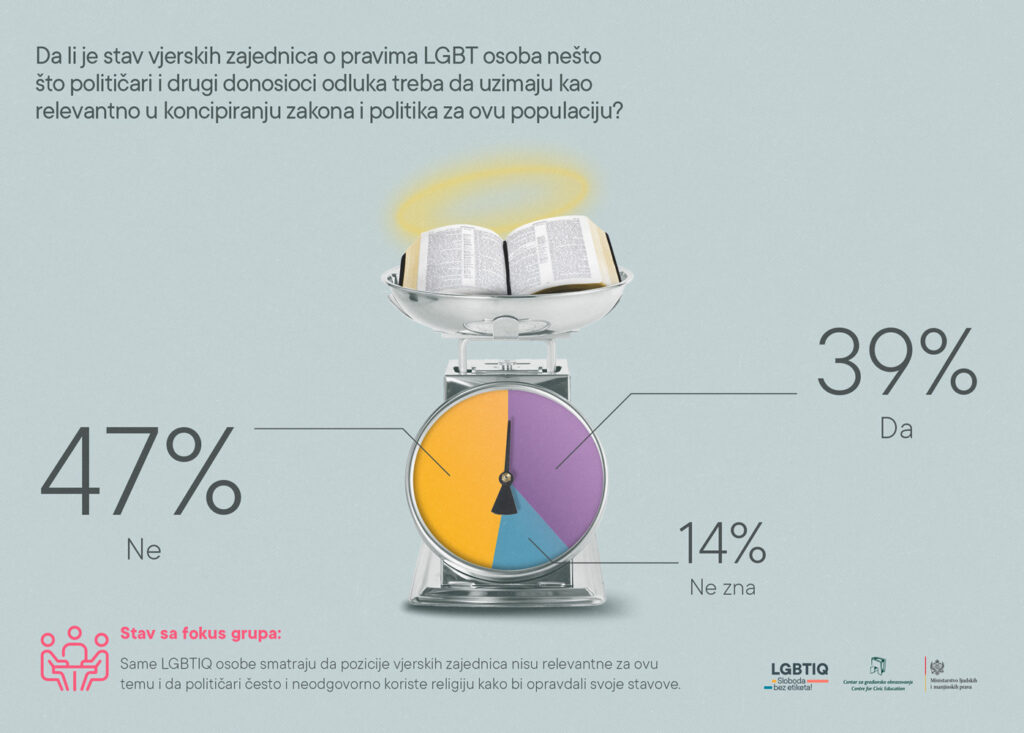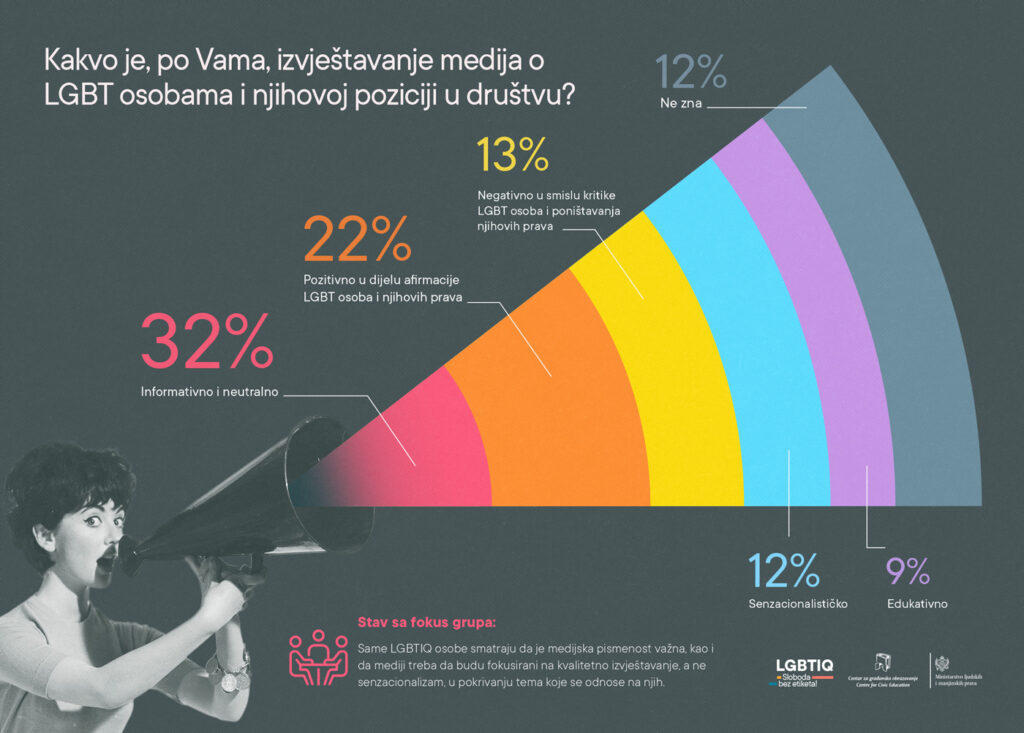The COVID-19 pandemic had a negative impact on the general position of LGBTIQ people, their material status and mental state, and a significant part of them also indicates an increase in discrimination and violence against LGBTIQ people during that period, it is part of the observation from LGBTIQ people that were collected during focus groups conducted by the Centre for Civic Education (CCE) with this population.
During the pandemic, LGBTIQ people experienced discrimination in the workplace, which in certain cases culminated in dismissal or resignation due to the inability of LGBTIQ people to continue to cope with this discrimination. This highlights the unequal position of LGBTIQ persons on the labor market in Montenegro if they are outed and/or if they do not hide their sexual orientation or gender identity, but also when they are victims of prejudice based on their perceived sexual orientation. As a result, it also affected their financial status, so the majority of members of the LGBTIQ community, who were participants in these focus groups, stated that they did not have enough money for everyday life during that period. They also emphasize that non-governmental organizations were supportive, helping them by providing basic foodstuffs, covering monthly bills, rent… In this context, CCE recommends that during extraordinary socio-economic situations, competent institutions provide aid packages in the form of necessities for all marginalized groups including the LGBTIQ community.
For more than half of LGBTIQ people, their mental state has been impaired during the COVID pandemic, and for most, the pandemic caused or deepened depression and anxiety. Also, LGBTIQ people, through focus groups, express the majority of dissatisfaction with the health service in the public health system, stating that they sought help from private institutions or were forced to stop therapy. In terms of health care, the most critical now is to ensure a regular supply of hormones and therapy for transgender people within the public health system, bearing in mind that transgender people are dependent on therapy for life due to medical transition.
Discrimination and violence against LGBTIQ persons have increased during the pandemic, both due to voluntary and forced to come out. If they are not discriminated against because they are openly outed, LGBTIQ people are discriminated against because of their perceived sexual orientation and gender identity. In this part, the most important is to improve the implementation of the existing legislative framework for the protection of human rights and the processing of cases of discrimination/violence/hate crimes against LGBTIQ persons.
When it comes to institutional protection of rights, LGBTIQ people generally know the institutions and procedures they can use to protect their rights, but they do not consider them accessible and open enough for support. Non-governmental organizations are recognized as the most agile in the fight against homophobia in our society, and it is often emphasized that NGOs have taken on roles that should be played by competent institutions. In this context, it is important that the police and the prosecutor’s office process cases of discrimination/violence/hate crimes against LGBTIQ persons with due care, but also that the efforts of the Ministry of Human and Minority Rights to protect the rights of LGBTIQ persons are strengthened. It is also important for LGBTIQ people how MPs in the Parliament of Montenegro speak and discuss them, and in that part it is recommended to sanction the hate speech of MPs and abolish immunity for such speech, with adequate prosecution for MPs who incite hate crimes against LGBTIQ people by abusing their immunity. “We are not asking for anything special, just for the state to function”, says one participant of the focus group, which reflects the attitude of LGBTIQ people that they are not asking for anything special in terms of institutional and legal protection, but only that the laws are applied and the mechanisms that already exist function.
In the part of media reporting, the conclusion is that it is important to establish and strengthen self-regulatory bodies and individual ombudsmen in the media to raise awareness for the rights of LGBTIQ persons and fight against the harmful representation of LGBTIQ persons in the media.
LGBTIQ people unanimously believe that politicians and other decision-makers should not take the views of religious communities on the rights of LGBTIQ people as relevant in creating laws and policies for this population, but they also assess that they often irresponsibly use religion to justify their views. In order to change this, it is important to strengthen and apply the constitutional provision on the secularity of the state of Montenegro, but also to introduce into the Law on Freedom of Religion or Belief and the Legal Position of Religious Communities an article on the prohibition of discrimination and incitement of hatred and intolerance justified by religious attitudes towards persons and groups based on any personal characteristic, sexual orientation or gender identity.
Focus groups on the impact of the COVID-19 pandemic on socio-economic status, mental health, discrimination and violence, as well as the general social positioning of LGBTIQ members whose findings were sublimated in the report, were organized during June 2022, within the project “LGBTIQ – Freedom without labels!”, which CCE implements with the financial support of the Ministry of Human and Minority Rights of Montenegro. Earlier, a public opinion survey on the same topic was presented as part of this project.
Željka Ćetković, Active Citizenship Programme Coordinator




